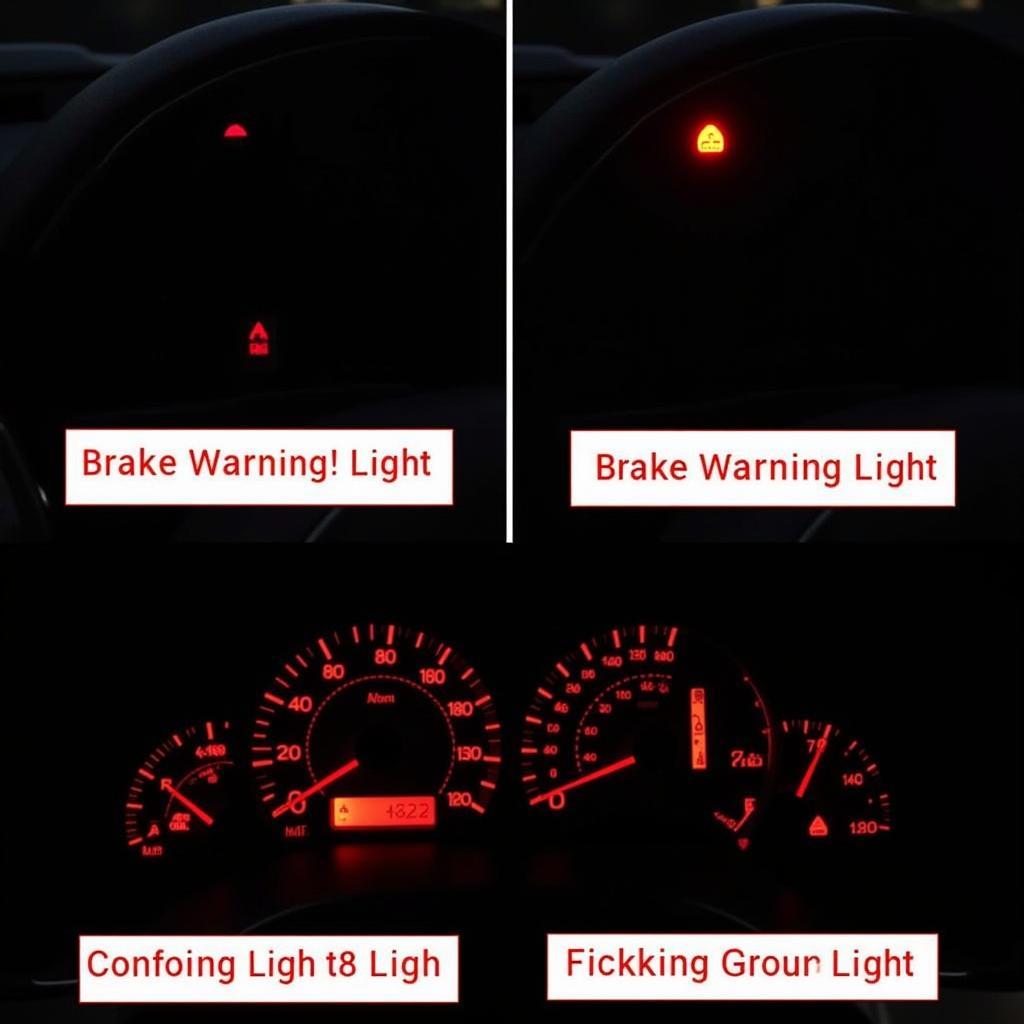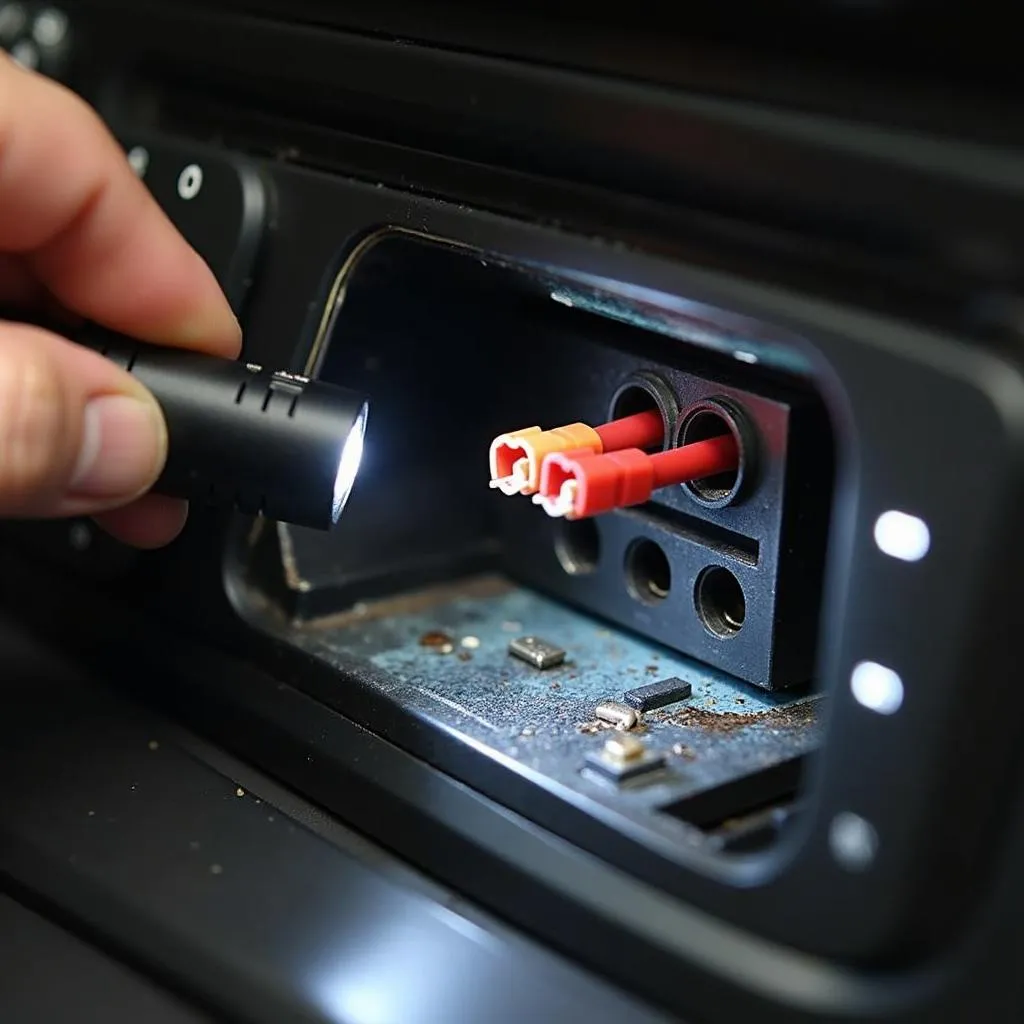Dodge Avenger battery problems can be a real headache, leaving you stranded and frustrated. From a dimming dashboard to a clicking starter, a failing battery can manifest in various ways. This guide will delve into the common causes, symptoms, and solutions for Dodge Avenger battery issues, empowering you to diagnose and even fix some problems yourself. We’ll explore everything from simple troubleshooting steps to more complex diagnostic procedures, offering valuable insights for Avenger owners of all model years.
A dead battery is often the first suspect when your Avenger refuses to start. But before you jump to conclusions (or grab your jumper cables), consider the various factors that can contribute to dodge avenger battery problems. These include extreme temperatures, parasitic drains, corroded terminals, and even a faulty alternator. Knowing how to identify the root cause is crucial for implementing the right fix. For example, a simple loose connection might be the culprit, while a more serious issue like a bad alternator could require professional attention.
Common Symptoms of Dodge Avenger Battery Problems
Recognizing the telltale signs of a failing battery can save you time and money. Here are some common symptoms to watch out for:
- Dim headlights: Noticeably dimmer headlights, especially at idle, can indicate a weakening battery.
- Slow engine crank: If the engine cranks slowly or struggles to turn over, your battery may be nearing its end of life.
- Clicking sound when starting: A rapid clicking sound when you turn the key usually signals a dead battery.
- Electrical malfunctions: Issues with interior lights, power windows, or the radio can be linked to battery problems.
- Dashboard warning lights: The battery light or check engine light may illuminate, indicating charging system problems.
If you experience any of these symptoms, it’s crucial to address the issue promptly. Ignoring battery problems can lead to further complications and potentially leave you stranded. Now, let’s explore some of the common causes of these issues.
Why Does My Dodge Avenger Battery Keep Dying?
Understanding the underlying causes of dodge avenger battery problems empowers you to make informed decisions about repairs. Here are some of the most frequent culprits:
- Age: Like any component, batteries have a limited lifespan. Over time, the battery’s ability to hold a charge diminishes.
- Extreme Temperatures: Both extreme heat and cold can stress a car battery, shortening its lifespan and causing performance issues.
- Parasitic Drain: Even when the car is off, certain electrical components can draw power, slowly draining the battery. This is often referred to as a “parasitic drain.”
- Faulty Alternator: The alternator is responsible for recharging the battery while the engine is running. A malfunctioning alternator can prevent the battery from receiving a proper charge.
- Corroded Terminals: Corrosion on the battery terminals can impede the flow of electricity, leading to starting problems and other electrical issues.
Troubleshooting and Solutions
Now that you’ve identified the potential causes, let’s discuss some troubleshooting steps and solutions for dodge avenger battery problems:
- Check the Terminals: Inspect the battery terminals for corrosion. Clean them with a wire brush and a baking soda solution if necessary.
- Test the Battery: Use a multimeter to test the battery’s voltage. A fully charged battery should read around 12.6 volts.
- Jump Start the Car: If the battery is dead, try jump-starting it using jumper cables. If the car starts, it suggests a problem with the battery’s ability to hold a charge. You might need a new battery. Sometimes, issues with your key fobs for a 2014 dodge avenger can also mimic battery issues.
- Check the Alternator: If the battery keeps dying even after a jump start, the alternator may be faulty. Have it tested by a mechanic. Issues with the abs brake warning light dodge might also point to electrical problems indirectly affecting the battery.
- Diagnose Parasitic Drain: If you suspect a parasitic drain, use a multimeter to measure the current draw with the car off. This can help identify any components drawing excessive power. Sometimes, the dodge avenger 2011 car radio wiring can be the culprit of a parasitic drain.
“A surprising number of battery issues stem from corroded terminals or loose connections,” says automotive expert, Michael Stevens. “A simple cleaning can often resolve the problem.”
Conclusion
Dodge Avenger battery problems can range from minor inconveniences to major headaches. By understanding the common causes, symptoms, and solutions, you can effectively diagnose and address these issues. Remember, regular maintenance, including periodic battery checks and terminal cleaning, can significantly extend the life of your battery and prevent unexpected breakdowns. And if you’re unsure about how to program a dodge key fob, always consult a professional. Ultimately, staying proactive is key to keeping your Dodge Avenger running smoothly. “Regular maintenance is crucial for preventing battery problems,” adds Stevens. “It’s a small investment that can save you time and money in the long run.” Don’t let a dead battery derail your journey – take control and keep your Avenger powered up! It’s also helpful to familiarize yourself with the inside of a key fob for a 2014 dodge avenger to understand its components.


